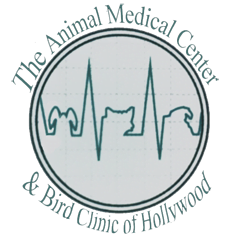As the holidays approach, many pet owners wonder what festive foods they can safely share with their furry friends. Surprisingly, common holiday treats that delight humans can be dangerous for dogs, leading to serious health issues.
This guide will reveal which seasonal delights to keep away from your dog and suggest safe alternatives to include them in the holiday cheer. Keep reading for a happy, healthy pooch this festive season!
Foods to Avoid During the Holidays
Alcohol, Caffeine, Candy, Chocolate, and Other Sweets
During the holidays, it’s tempting to share festive foods with dogs, but some treats can be harmful to their health. Alcohol is highly toxic for dogs; even small amounts can cause severe intoxication, leading to vomiting, disorientation and, in extreme cases, coma or death.
Similarly, caffeine found in coffee, tea, chocolate and energy drinks is dangerous for your canine friend.
Candy and sweets often contain xylitol—this sweetener is safe for humans but can trigger a sudden release of insulin in dogs resulting in hypoglycemia (low blood sugar), which might lead to liver failure.
Chocolate contains theobromine and caffeine which are both poisonous to dogs; ingestion can result in panting, excessive thirst and urination, hyperactivity followed by lethargy, as well as seizures.
Always keep these items out of your dog’s reach during holiday celebrations to ensure pet wellness throughout the season.
Onions, Garlic, Chives, and Other Seasonings and Spices
Onions, garlic, chives, and other seasonings and spices can be harmful to dogs. These ingredients contain compounds that can cause damage to a dog’s red blood cells, leading to anemia.
Even in small amounts, these seasonings and spices can have toxic effects on your pet’s health. It’s crucial to be mindful of the ingredients used in holiday dishes and avoid giving dogs any food seasoned with these items.
When it comes to festive meals for your furry friend, sticking to plainly cooked meats without seasoning is the safest option. Opting for pet-friendly alternatives like plain turkey or bone broth will help keep your dog safe from potentially harmful ingredients often found in holiday cooking.
Fatty Meats and Bones
Fatty meats like ham, bacon, and sausage can be harmful to dogs. These foods are high in fat and can cause pancreatitis in pets. Bones from poultry or fish can splinter and cause choking hazards or internal injuries for dogs.
It’s crucial for pet owners to avoid giving their dogs fatty meats and bones as part of holiday meals. Instead, opt for leaner cuts of meat without any additional seasonings that may not agree with your dog’s stomach.
When it comes to bones, raw bones that are large enough not to be swallowed whole can provide a safe alternative for your pet.
Safe Holiday Foods for Dogs
Plain Turkey and Raw Bones
For holiday meals, plain turkey and raw bones might seem like a tempting treat for your furry friend. However, feeding dogs cooked bones, especially poultry bones, can be dangerous as they can splinter and cause internal injuries.
Opting for boneless turkey meat without seasoning or spices is a safer alternative that can be an occasional addition to your dog’s diet during the festive season.
Raw bones can also pose a risk of bacterial contamination and choking hazards. It’s important to supervise your pet if you choose to give them raw bones and ensure they are appropriately sized to avoid any incidents.
Apples, Berries, Pumpkin, Carrots, and Green Beans
Include seasonal produce like apples, berries, pumpkin, carrots, and green beans as part of your dog’s holiday meals. These fruits and vegetables are full of essential nutrients that can contribute to your pet’s overall health.
Apples and carrots can serve as crunchy snacks that also help to clean your dog’s teeth. Berries are packed with antioxidants, while pumpkin can aid in digestion and is useful for constipation or diarrhea.
Additionally, green beans provide a wonderful source of fiber while being low in calories.
Tips for keeping your pet safe during the holidays
Ensure a safe holiday for your pet by keeping them away from harmful foods. Keep an eye on them to prevent access to chocolate, sweets, nuts, and other dangerous treats. Additionally, avoid giving your pets cooked bones or fatty scraps from the table.
Secure garbage bags tightly to prevent scavenging and potential ingestion of harmful items.
To keep your pet healthy during the festivities, include them in celebratory meals with dog-safe options such as plain turkey and raw bones or fruits and vegetables like apples, berries, pumpkin, carrots, and green beans.
Conclusion
Keep your furry friend safe this holiday season by avoiding dangerous foods like chocolate, onions, and fatty meats. Stick to pet-friendly options such as plain turkey, apples, and carrots for their festive treats.
By being mindful of what you feed them, you can ensure your dog stays healthy and happy during the holidays.
Frequently Asked Questions
1. What are some dangerous foods for dogs during the holidays?
During the holidays, dogs should avoid certain dangerous foods such as chocolate, grapes, and anything with xylitol.
2. Can I share my Christmas dinner with my dog?
Be cautious about sharing your Christmas dinner with your dog; many traditional dishes contain ingredients like onions and garlic that are harmful to canine health.
3. Are there any festive treats I can give my pet safely?
Yes! While you avoid toxic holiday foods, look for pet-friendly holiday treats explicitly made for dogs to ensure their safety and enjoyment.
4. Why is it important to know about seasonal meals that can affect dog safety?
Knowing which seasonal meals and festive dishes could be dangerous allows you to protect your pet’s nutrition and prevents trips to the vet over the holidays.
5. What should I do if my dog eats Thanksgiving or Christmas foods they shouldn't have?
If your dog ingests any harmful holiday foods, contact your veterinarian immediately for advice on how to handle the situation and keep your pet safe.

